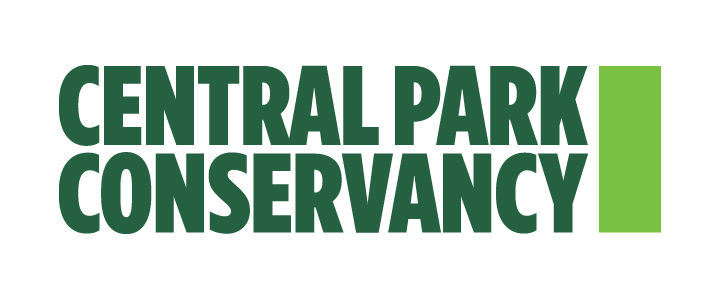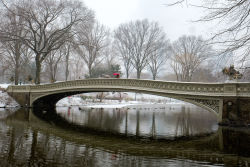Central Park
The Daily Plant : Friday, August 1, 2003
PARKS LIBRARY PROVIDES A HOME FOR THE NEWLY CONSERVED MINUTES AND ANNUAL REPORTS

The same state legislation that marked the birth of Central Park, and whose anniversary is being celebrated this summer, also required that a Board of Commissioners be formed to oversee the construction. In a fashion typical of the 19th century, this board maintained exquisitely detailed meeting minutes, which were published and distributed in bound editions, so that the record of their great undertaking could be known by all. Every expenditure and even every planned but perhaps rejected expenditure, was meticulously recorded in the minutes. At the end of each year, beginning in 1857, these minutes were consolidated into annual reports that augmented the fiscal narrative with handcrafted engravings (and photos in later years) of the progress of construction. Eventually, the Board of Commissioners of Central Park branched out and became the Board of Commissioners of the Department of Parks, and likewise their reports make reference to all the parks in Manhattan, and after 1874, the lower Bronx.
Parks & Recreation holds a collection of 175 of these historic Annual Reports and Minutes, which clearly constitute the most significant rare book collection from this era held by the agency. Not only do they detail the first 70 years of the development of a formal parks system in New York City, the collection also provides the most comprehensive visual resource of early park history. These documents’ singularity is emphasized not only by their content but their character, for never again was Parks & Recreation’s history as painstakingly recorded as it was during that period.
Over the years not enough had been done to safeguard the collection, and the volumes suffered the effects of dampness and temperature extremes typical of poor storage conditions. Due to their extremely fragile state, the Annual Reports and Minutes were no longer able to be used and would have been lost forever had they been allowed to continue to deteriorate.
To remedy this, the Prospect Park Alliance recently collaborated with Parks Recreation’s Art & Antiquities division on a successful state grant to preserve these valuable resources. The arduous task of conserving each of the 50,000 pages in the collection began in late winter 2003, and in June the first of the volumes returned from the conservator. The conservation process involved mending tears in the pages, deacidifying the pages, encapsulating each page in a polyester film sleeve, and binding the encapsulated pages.
The full set of Minutes, preserved as in the top right photo, is now available in the Parks & Recreation Library, and a similar set of the Annual Reports will be delivered in the fall. In addition to documenting the development of Central Park and Prospect Park, the reports detail national milestones such as the first municipal bicycle path (1895), the first public golf course (1895) and the first municipal playground (1903). They record social reformers’ promotion of local playgrounds and bathhouses, athletic competitions and activities such as arts and crafts and children’s farm gardens.
The greatest benefit of this conservation project is that the Parks & Recreation Library will now be able to offer easy access to these materials to anyone seeking to use them, both within and outside the Parks & Recreation Department. Although the sentiment of 20th century modernism stifled the importance of referencing the past and recording history for posterity, in recent years our society has learned a new appreciation for history. Therefore, and as opposed to their Robert Moses-era counterparts, today’s Parks & Recreation Designers rely heavily on historic documents to understand and draw out each individual park’s unique past, as they redesign our parks system. Parks aborists too will be able to use these new reports to find out when particular plantings took place or what landscaping changes in the past affected a park’s ability to support certain kinds of trees today.
Landscape architects, urban planners, architects and historians, as well as writers, filmmakers, scholars and the general public are expected to come to use these resources in the Parks Library because, even though they can be found in a few other places in the city, nowhere are they in such pristine condition or so easy to access. So come by the Library during your next lunch hour or in between meetings, to pick up a book written when your great grandparents were children and find out how these green pastures came to be.
Written by John Mattera and Scott Sendrow
QUOTATION FOR THE DAY
"All Nature wears one universal grin."
Henry Fielding
(1707-1754)
Check out your park's Vital Signs
Clean & Safe
Green & Resilient
Empowered & Engaged Users
Share your feedback or learn more about how this park is part of a
Vital Park System
Contacts
Central Park Information: (212) 310-6600
Central Park Information (for the Hearing Impaired): (800) 281-5722
Belvedere Castle, The Henry Luce Nature Observatory: (212) 772-0210
The Charles A. Dana Discovery Center: (212) 860-1370
The Dairy Visitor Center and Gift Shop: (212) 794-6564
North Meadow Recreation Center: (212) 348-4867
Loeb Boathouse (Bike rentals, boat rentals & gondolas): (212) 517-2233
Carousel: (212) 879-0244
Fishing at Harlem Meer (Catch & Release): (212) 860-1370
Harlem Meer Performance Festival: (212) 860-1370
Horseback Riding - Claremont Stables: (212) 724-5100
Metropolitan Opera (Performances on the Great Lawn): (212) 362-6000
New York Philharmonic (Performances on the Great Lawn): (212) 875-5709
Shakespeare in the Park - The Public Theater at the Delacorte Theater: (212) 539-8655
Central Park SummerStage: (212) 360-2777
Swedish Cottage Marionette Theater: (212) 988-9093
Tennis: (212) 280-0205
Weddings, Ceremonies and Photography at the Conservatory Garden: (212) 360-2766
Wildlife Center & Tisch Children's Zoo: (212) 439-6500











